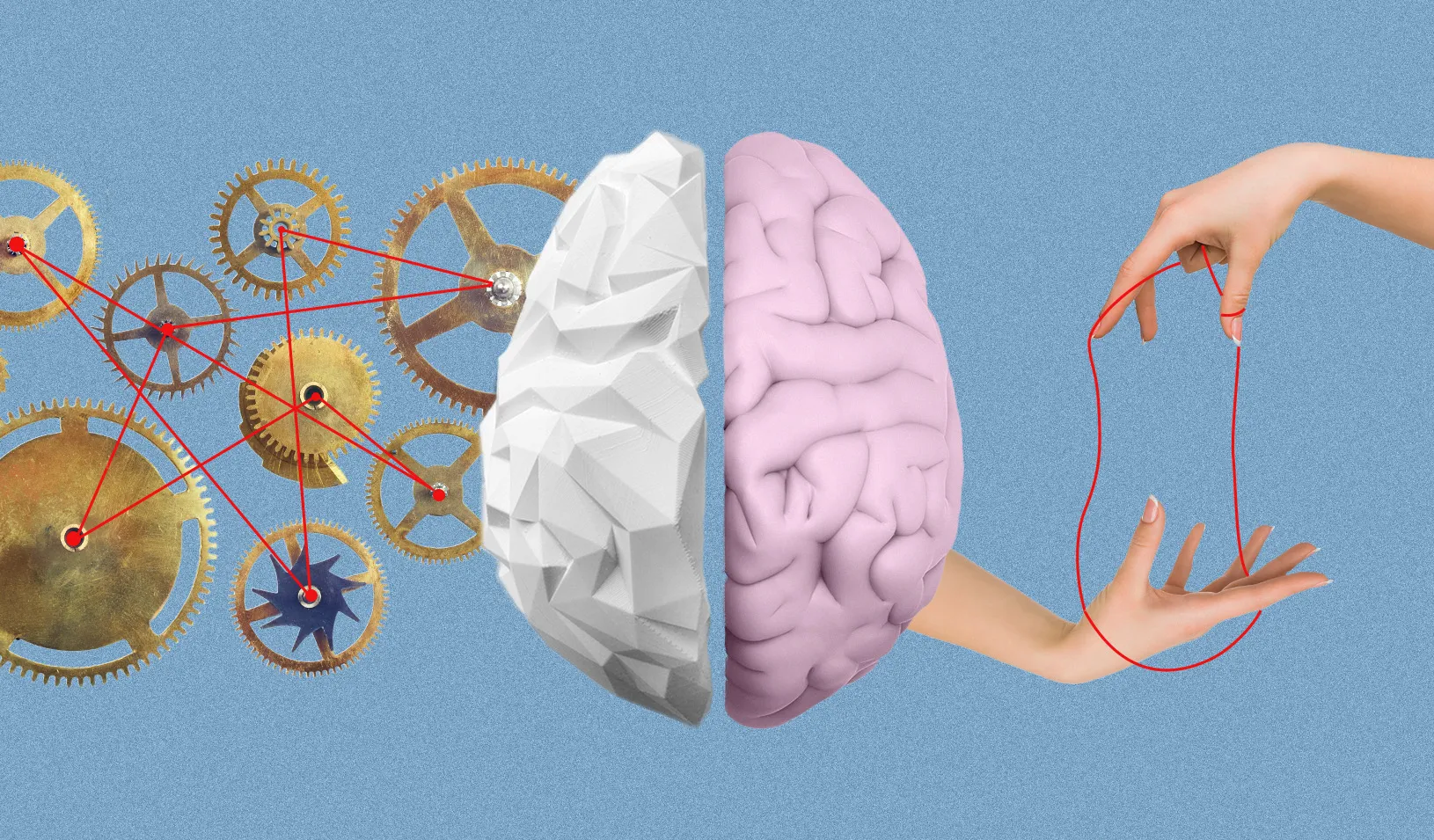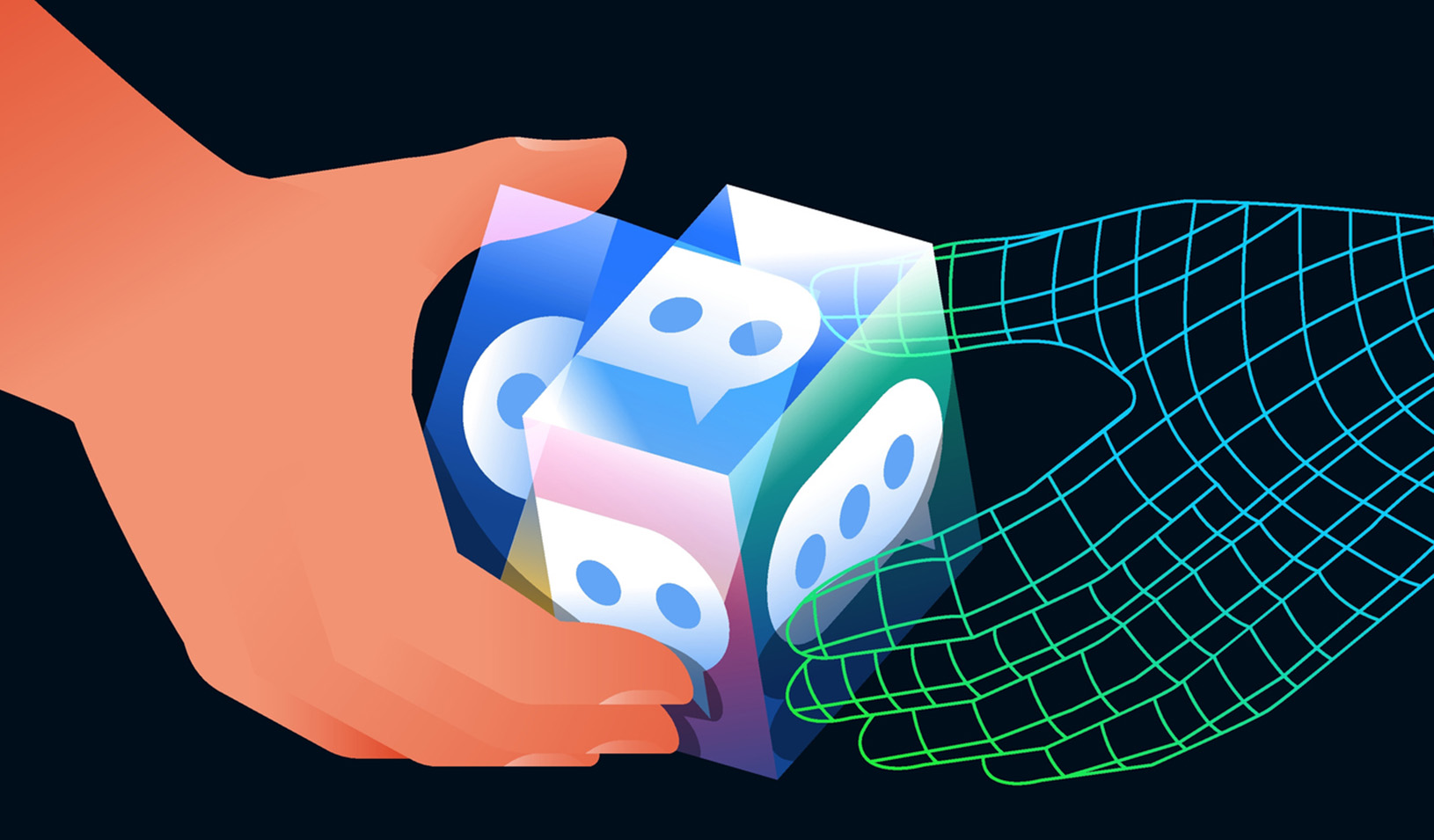
If our sense of identity is threatened by AI, will we change our criteria for what it means to be human? | Sarah McKinney
Artificial intelligence has made stunning leaps in the past year. Algorithms are now doing things — like designing drugs, writing wedding vows, negotiating deals, creating illustrations, composing music — that have always been the sole prerogative of humans.
There’s been plenty of giddy speculation about the economic implications of all this. (AI will make us wildly productive! AI will steal our jobs!) Yet the advent of sophisticated AI raises another big question that’s received far less attention: How does this change our sense of what it means to be human? In the face of ever more intelligent machines, are we still… well, special?
“Humanity has always seen itself as unique in the universe,” says Benoît Monin, a professor of organizational behavior at Stanford Graduate School of Business. “When the contrast was to animals, we pointed to our use of language, reason, and logic as defining traits. So what happens when the phone in your pocket is suddenly better than you at these things?”
Monin and Erik Santoro, then a PhD candidate in social psychology at Stanford, began talking about this a few years ago, when a program called AlphaGo was trouncing the world’s top players in the complex strategy game Go. What intrigued them was how people reacted to the news.
“We noticed that when they discussed these milestones, people often seemed defensive,” says Santoro, who earned his PhD this spring and will soon begin a postdoc at Columbia University. “The talk would gravitate to what the AI couldn’t yet do, as if we wanted to reassure ourselves that nothing had really changed.”
And with each new advance, Monin adds, came the refrain, “Oh, that’s not real intelligence, it’s just mimicry and pattern matching” — ignoring the fact that humans also learn by imitation, and we have our own share of faulty heuristics, biases, and shortcuts that fall well short of objective reasoning.
This suggested that if humans felt threatened by the new technologies, it was about more than the security of their paychecks. Perhaps people were anxious about something more deeply personal: their sense of identity and their relevance in the grand scheme of things.
The Rise of the Machines
There’s a well-established model in psychology called social identity theory. The idea is that humans identify with a chosen in-group and define themselves in contrast to out-groups. It’s that deep-rooted us-versus-them instinct that drives so much social conflict.
“We thought, maybe AI is a new reference group,” Monin says, “especially since it’s presented as having human-like traits.” He and Santoro wondered: If people’s sense of uniqueness is threatened, will they try to distinguish themselves from their new rivals by changing their criteria for what it means to be human — in effect, by moving the goalposts?
To find out, Santoro and Monin drew up a list of 20 human attributes, 10 of which we currently share with AI. The other 10 were traits they felt are distinctive to humans.
20 Human Attributes
Shared with AI
- Doing computations
- Using language
- Implementing rules
- Forecasting the future
- Using logic
- Communicating
- Recognizing faces
- Remembering things
- Sensing temperatures
- Detecting sounds
Distinctive to Humans
- Having culture
- Holding beliefs
- Having a sense of humor
- Being moral
- Being spiritual
- Having desires
- Feeling happy
- Feeling love
- Having a personality
- Having relationships
They surveyed 200 people on how capable they thought humans and AI were on each trait. The respondents rated humans as more capable on all 20 traits, but the gap was small on the shared traits and quite large on the distinctive ones — as expected.
Now for the main test: The researchers split around 800 people into two groups. Half read an article titled “The Artificial Intelligence Revolution,” while a control group read a piece on the remarkable attributes of trees. Then, returning to the list of 20 human attributes, the test subjects were asked to rate “how essential” each one is to being human.
Sure enough, people who read about AI scored distinctively human attributes like personality, morality, and relationships as more essential than did those who read about trees. Confronted with AI’s advances, people’s sense of human nature narrowed to emphasize the traits that machines do not have. Monin and Santoro dubbed this the AI Effect.
Human Resources
To rule out other explanations, they ran several more experiments. In one, participants were simply told that AI was improving. “Same result,” Monin says. “Every time we mentioned advances in AI, we got this bump in importance for distinctive human attributes.”
Surprisingly, participants didn’t downplay the traits shared by humans and AI, as the researchers had predicted they would. “So even if humans are no longer the best at logic, they didn’t say logic is less central to human nature,” Santoro notes.
Of course, artificial intelligence isn’t exactly like an invading tribe with foreign manners — after all, we created it to be like us. (Neural networks, for example, are inspired by the architecture of the human brain.) But there is an irony here: The cognitive skills and ingenuity that made AI possible are now the very ground on which machines are surpassing us. And as the findings of the present research suggest, that may lead us to put more value on other traits.
It’s also worth noting that those cognitive skills still command high status and pay. Could that change if soft skills like warmth and empathy, the ability to nurture growth in others, are valued more highly? Will lawyers and quants be paid less, while teachers and caregivers receive more respect and money?
“That’s certainly a possible implication of our work,” Monin says. “There’s a whole slew of competencies that not only won’t be taken over by AI but that people are going to value more and more. In a world of ubiquitous and capable AI, interpersonal skills will likely be increasingly sought after by employers.”
Meanwhile, he says, the AI Effect is likely growing. “Since we conducted this research, the real world has overtaken anything we could have imagined. It’s been a constant barrage of information about new achievements in AI. So whatever we saw in our little version in the lab is probably already happening at a much broader scale in society.”
For media inquiries, visit the Newsroom.






